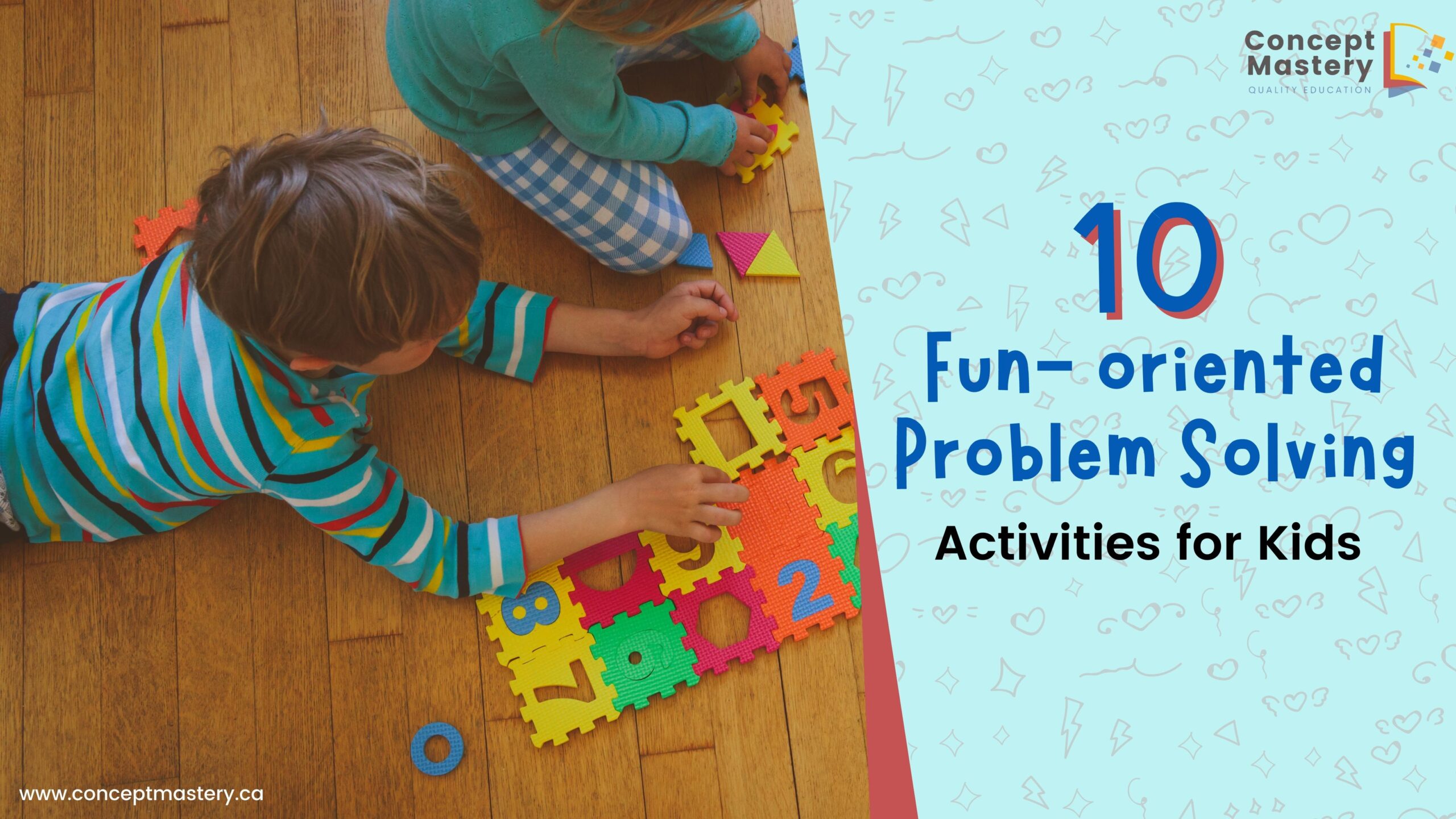We are constantly exposed to problems of all kinds. The balance of mind, logical and cognitive thinking can offer a solution. Mastering problem-solving skills from an early age helps kids handle their academic, personal, and professional lives. Solving mathematics can be problematic. There are various ways to prove that maths is fun. Parents and educators must introduce simple, fun problem-solving activities.
Let’s learn ten such easy tips.
Early Skills in Problem-Solving
Start the process at the earliest. Studies recommend the ideal preschool stage for a child to learn problem-solving playfully. Learning it during formative years has its perks, and it equips the child with a life skill that will be relevant throughout their lifetime.
Go Creative with Activities
Use your creativity to engage the kids in solving problems. Give them simple tasks such as resolving a fight over chocolates, forming a line with friends, creating a new game by setting rules, or even untangling a rope or shoelace. Enhanced creativity activates the problem-solving muscle.
Source: Pexels
Teach Them Practicality
It is pertinent to train the kids for being realistic about a problem. Meanwhile, let them embrace their limitations to realise what is under their control and what’s not.
Let Them Give Suggestions
Allow them to express what they feel about a problem and what could be a solution. It can be an adult problem. If you are unwell to cook, share it with your kids and seek their advice despite being the mother.
Fun Loaded Problem-Solving
Give freedom to your kids the freedom to select games and activities of their liking. They can be Lego, blocks, puzzles, sudoku, or fancy dresses. They allow critical thinking.
Source: Pexels
Maths for Kids Can Be Fun
The additions, multiplications, numbers and so on are often intimidating for many kids. The incorporation of games can change the narratives. The kid would say maths is fun. Depending on the child’s age, choose the games. Play easy and short maths games during breakfast or while strolling in the park. The longer ones can be done involving everyone in the family.
Books for Inspiration
If the child is complaining about a problem and thinks there is no solution, introduce them to reading books with fascinating stories. For example, the tale of Thirsty Crow would teach them how the crow could quench its thirst by using common sense.
Fanning the Crafty Side
Often problems manifest a range of emotions. Ask your kids how they feel about it. Meanwhile, give them craft materials such as crayons, colour pencils, and paper to sketch or draw a viable solution.
Source: Pexels
Let It Express Through Words
At times, a few kids struggle to articulate the problems verbally. If they are at an age to write and express, allow them to do so. You can prompt them to write their story in the third person.
Treasure Hunts Around Numbers
It can drive the fear of arithmetic among kids in a fun way. Chalk out a treasure hunt based on additions, subtractions, multiplications tables, and similar maths for kids. The answers can have clues leading to a treat or prize. Plan these activities during weekends and holidays.
Amaze with Mazes
Kids of all age groups can participate and enjoy mazes. These fun activities stimulate critical thinking, sharpen direction sense, and hone observational skills. Apart from book mazes, there are plenty of options online. Gradually introduce them to more complex mazes.
Source: Pexels
Enable your kids to face and solve the problems on their own. Such simple fun-oriented problem-solving activities will allow them to identify the issues and find solutions independently. Even often feared maths is fun when solved in an entertaining way.

